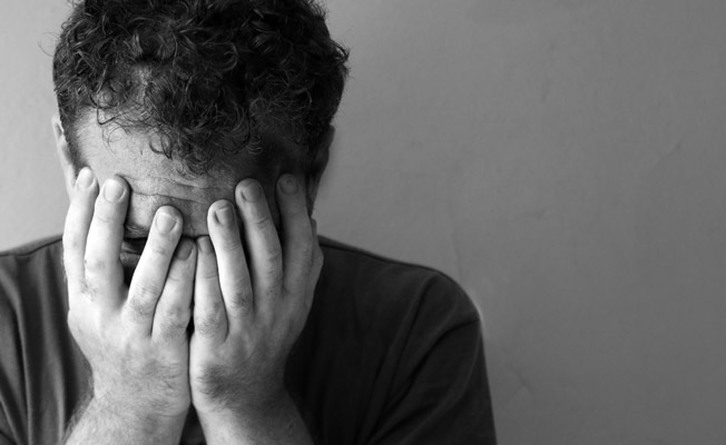The Effects of Stress on Your HairWebMD FeatureBy Joseph Saling
Reviewed By Laura J. Martin, MD WebMD Feature Archive It has been said that stress can make you go gray, or cause you to lose your hair. But can it? Even though you sometimes feel like tearing your hair out because of personal, economic, and work-related stress, stress isn't likely to be the direct cause of hair turning gray. Some studies have shown that unavoidable damage to the DNA in cells that produce the pigment responsible for hair color is most likely the culprit. But can stress accelerate the aging process and, as a result, cause you to go gray sooner than you otherwise would? Right now, the answer is debatable. "We have all witnessed the graying hair of many past presidents," says Amy McMichael, MD, professor of dermatology at Wake Forest Baptist Health in Winston-Salem, N.C. "Perhaps over long periods of stress, there may be an acceleration of gray hair in some people." But, she points out, that idea is mainly speculation. "I don't know of any studies showing this," she says, "and I'm not sure I have a scientific answer." If the jury's still out on the question of stress turning hair gray, then what's the verdict on stress and hair loss? Could there be a relationship? What's Stressing YouParadi Mirmirani, MD, a dermatologist with the Permanente Medical Group in Vallejo, Calif., says it all depends on what type of stress you're talking about. "Stress because you're late to work or you've got a heavy workload is not going to cause you to lose hair," she says. Short-term, everyday stress is not going to affect your body in such a way that your hair falls out. It takes something larger to do that. "Something that causes you to lose sleep," Mirmirani says, "or changes your appetite and raises the level of stress hormones." McMichael puts it more bluntly. "There has been, for my entire life, this mythical connection between stress and hair. It's absolutely ridiculous." McMichael says there is no evidence to support the idea that just because you had a few stressful days last week your hair will fall out this week. "It doesn't even work that way," she says. Stress and Hair: The Hair CycleA normal head of hair contains about 120,000-150,000 strands of hair. Usually, at any one time, about 90% of those hairs are in a growing phase, growing by about 1/2 inch each month. This phase lasts for two to three years. At that point, a hair will go into a resting stage. This "rest" lasts for 3 to 4 months before the hair falls out and is replaced by a new one. "Typically, people shed about 100 hairs a day," says Carolyn Jacob, MD, founder and medical director of Chicago Cosmetic Surgery and Dermatology. "Most people don't even notice." Sometimes, a significant stress of some sort may spark a change in your body's routine physiological functions, Jacobs says, and cause a disproportionate number of hairs to go into the resting phase at the same time. Then three to four months later, sometimes longer, all those resting hairs are shed. The effect can be alarming. The types of events that disrupt the normal hair cycle, Jacob says, can be caused by the substantial physiological stresses on your body. But, according to McMichael, physiological stress is not the same as emotional stress.Hair loss can be one way the body responds to significant physiological stress that may be brought on by diet, medical, or lifestyle changes. "Only those things that cause physiological stress can cause a hair loss event," McMichael says. The good news is that the hair loss from these kinds of events is usually temporary, as long as the stress event is temporary. Once the stressor is addressed or goes away on its own, hair grows back and the normal hair cycle resumes. Stress and Hair: What Causes Hair Loss?A variety of stressors may cause your body to undergo hair loss. It happens, McMichael says, when there's some type of physiological change in your system. "For instance," she says, "you go on or off an oral contraceptive. Or you lose more than 15 pounds of weight. Things like this change the physiological balance in your system." Other stressors, according to McMichael, could include:
Stress and Hair: What Causes Hair Loss? continued...Mirmirani says that hair shedding can also result from certain medications, thyroiddisease, and nutritional deficiencies such as vitamin D or too much vitamin A. Pinpointing the actual cause of the shedding isn't always easy. That's because, Mirmirani says, there's a three- to six-month lag time between the stressful event and the hair loss. In order to determine the cause, you need to look back at what was happening three, six, or even nine months before the hair loss began. Stress and Hair: The Physiological & Emotional ConnectionEmotional stress can also lead to physiological stress. For example, McMichael says, "if you're going through a severe divorce, you might not be eating properly; you might lose weight or not sleep well. You may go off and then back on your oral contraceptives." All of these things cause physiological stress and an imbalance in your system. "The point is," she says, "there are a lot of other things that are physiological going on. You're not losing your hair because you hate your ex-husband." McMichael says that women have a number of things that happen on a regular basis that they may not recognize as stressors. "You start out your life and you're fine," she says. "You're 20 years old and get married. You get on some oral contraceptives. Well, that causes shedding." When a woman decides to have a baby, if she is taking oral contraceptives, she'll stop taking them. "Maybe you have a little bit of shedding related to that. And then you get pregnant." Pregnancy causes the body to keep the hair that normally would fall out as part of the regular hair cycle. So a woman may notice her hair feels extra thick and fuller during that time. After giving birth, all the hair that would have fallen out is shed three to six months later. Also, many women try to lose weight after having a baby. "Someone in the family dies and, because you've heard that stress causes hair loss, you say, 'Oh my God, I'm losing my hair because someone died.' But that's not it," McMichael says. "You're losing hair because you lost 30 pounds." Stress and Hair: The Physiological & Emotional Connection continued...Every person is different. "Not everyone gets these episodes of hair loss. Some women go on and off of contraceptives and never have shedding. Some have seven children and have no hair loss related to it." Once you have shed hair in response to a physiological stress, however, you are likely to do it again, McMichael says. McMichael says that because people have repeated the myth of a direct connection between emotional stress and hair loss for so many years, many people now believe it. "There's no way to predict who's going to lose hair and who's not. If you're a shedder, you'll shed," Jacob says. She also says there's no scientific evidence that points to specific emotional stresses that might trigger the physical stress that can lead to hair loss. Seeing a Doctor About Hair LossUnlike other types of hair loss that are more often permanent, hair loss during the normal hair growth cycle happens suddenly. It also doesn't normally cause bald spots or follow a pattern like genetic or autoimmune-related hair loss. Instead, it's diffuse and causes thinning of the hair across the scalp. That’s because each of the 120,000-150,000 hair follicles is independent of other hair follicles and is in its own cycle of growth. Some are growing while others fall out. You may notice after washing your hair that handfuls of hair have fallen out. "But," says Mirmirani, "usually by the time someone notices the shedding, the hair is already growing back. Whatever caused it happened three months or more before. The new hair growing in is pushing the resting hair out." It's true that hair loss can be an early sign of about 30 different diseases. But don't jump to conclusions -- you could be perfectly healthy and still have some hair loss. Talk to your doctor for his or her perspective and guidance. Jacob says that products on the market, such as over-the-counter minoxidil and various supplements that are sold for hair loss, can actually cause problems if they're not truly needed and not used properly. It's important, she says, to discuss the use with the doctor first. Seeing a Doctor About Hair Loss continued...Your doctor can also help you find solutions for dealing with particular stressors causing shedding. Once you address those causes, the shedding should stop and your hair should return to normal. SOURCES: Paradi Mirmirani, MD, department of dermatology, The Permanente Medical Group, Vallejo, Calif. Amy McMichael, MD, professor of dermatology Wake Forest Baptist Health; former vice president, Women's Dermatologic Society, Winston-Salem, N.C. Family Doctor.org: "Hair Loss and Its Causes." Mayo Clinic: "Hair Loss." Carolyn Jacob, MD, founder and medical director, Chicago Cosmetic Surgery and Dermatology. American Academy of Dermatology. AgingSkinNet: "What Causes Hair Loss?" "Best Rx Options for Hair Loss in Women." National Geographic: "Gray Hair Caused by Stress (Cell stress, That Is)." Inomata, K.,Cell. Reviewed by Laura J. Martin, MD on November 07, 2012 © 2011 WebMD, LLC. All rights reserved. Hair Growth: 7 Natural Tips to Make Your Hair Grow FasterWith the monsoons right round the corner, it is time you start paying a little more attention to your hair. Get rid of those expensive, chemical leached hair products, and say hello to natural remedies. There’s nothing like making the most of what nature has to offer. Our hair is made up of a protein called keratin that is produced in the hair follicles. As follicles produce new hair cells, old cells are being pushed out through the surface of the skin at the rate of about six inches a year. The hair that you can see is actually a string of dead keratin cells. An interesting fact is that an average adult has about 100,000 to 150,000 hair strands and loses up to 100 of them a day. Therefore, finding a few stray hairs on your hairbrush is not necessarily a cause for alarm. Initially, hair loss was seen as a sign of ageing, but in the urban scenario with everyone leading a hectic lifestyle, it has become a reason for worry for many. There are various causes for hair loss, ranging from medication, hormonal imbalance, the kind of diet you consume work stress. As a habit, we all look for an instant chemical remedy for hair loss for quick results despite being aware of its many harmful consequences. Going natural is the best solution for hair problems, since it doesn’t have any side effects and its results are long lasting. Here’s bringing you seven easy and effective home remedies for hair loss. Most of the ingredients for these quick fixes are available in your own kitchen! The Magic of Nature 1. Onion Juice – This remedy is regarded as one of most effective and oldest ones. The reason behind is that it contains sulphur that boosts collagen production in the tissues and helps in the re-growth of hair. Don’t let its strong smell keep you away from using it, because it goes off just after one rinse. To try this remedy, cut a few slices of onion and squeeze out its juice (either by mashing it or grating it) and apply it on your scalp for about 10-15 minutes. Let it work its magic and then rinse it off with a mild shampoo. Quick tip: You can substitute this with potato juice as well. Do you Suffer From Falling Hair Nightmares? 2. Coconut Milk - According to Dr. Blossom Kochhar, Chairperson, Blossom Kochhar Group of Companies, the most effective remedy for natural hair growth is the use of coconut milk because it is rich in iron, potassium and essential fats. Her remedy, “takecoconut milk from a fresh coconut (do not purchase the coconut milk - take it out meticulously from a fresh coconut). To it add half a squeeze of lemon, 4 drops of essential lavender oil. Mix it thoroughly and apply it on your scalp, leave it on for 4-5 hours and then rinse it off.” 3. Apple Cider Vinegar – This vinegar gently cleanses the scalp and maintains the pH balance of the hair thereby accelerating hair growth. Start for making a diluted solution by mixing 75ml of it in one litre of water for a larger batch or 15 ml of it to a cup of warm filtered water for a smaller batch. To apply this solution, use it as a final rinse after washing your hair. This will also give your hair an added shine and boost hair growth. 4. Make your Own Egg Mask – This home remedy is used all over the world for quick and natural hair growth. As we know, eggs contain high levels of proteins which help in the formation of new hair. It is also rich in sulphur, zinc, iron, selenium, phosphorous and iodine. For the egg mask, separate one egg white in a bowl and add one teaspoon of olive oil ( you can also use grape seed oil or lavender oil )and honey. Make a paste of it and apply it all over your hair and scalp for about 20 minutes. Rinse it off with cool water and some shampoo. Quick tip: Egg masks work wonders for a glowing and healthy skin. Fenugreek– This herb is also an age-old remedy for hair growth problems. It contains proteins and nicotinic acid; protein-enriched diets have been known to encourage stimulation of hair growth. Add a tablespoon of this herb and water in a grinder till a smooth paste it formed. Add a little coconut oil (or milk) to it and apply on your hair and scalp for half an hour. Wash it off with a mild shampoo. Not only will this remedy help you for hair growth but it will also protect the natural colour of your hair. 6. Green Tea – Now you have the perfect solution for those used tea bags that you throw away daily. Green tea, as you know is super rich in antioxidants and that helps in boosting hair growth and preventing hair loss. Apply warm green tea (from the used tea bags) over your scalp and leave it for an hour. Wash it off with cool water. 7. Indian Gooseberry (amla) – This magical fruit is a powerhouse of nutrients. It’s rich in Vitamin C and that accelerates hair growth. All you need to do is, mix 2 teaspoons of amlapowder or juice with equal amounts of lime juice and let it dry. Rinse it off with some warm water. It will also prevent hair pigmentation.
Don't Be Fooled by These Four Hair Loss TreatmentsAs the demand for cosmetic treatments continues to grow, some marketers have fallen for the temptation of presenting certain types of products and treatments as being more than they are. There are a lot of treatments out there that promise much, but don't always deliver. One of the top offenders: hair loss treatments. First, it's important to point out that hair loss is a treatable medical condition with a strong medical industry behind it --it even has its own board-certification program for doctors and a number of medical research organizations. However, like many other cosmetic fields, it is also rife with misinformation, questionable products and unqualified doctors. The Food & Drug Administration has done a somewhat reasonable job in recent years of cracking down on phony hair loss products and exaggerated marketing claims. However, many consumers still get fooled each year by misleading products, online ads, inappropriate expectations of what potential treatments can do, and doctors who lack the experience and tools to properly treat and track them. Here are four hair loss treatments that consumers should watch out for: Hair Loss Brushes - One persistent hair loss myth is that stimulating the scalp with magnets, brushes and massagers can improve blood circulation to the hair follicles and therefore reduce hair loss and improve new hair growth. There is no reliable medical evidence to support this claim. While there are real medical treatments to stimulate hair follicles and help improve blood circulation - like minoxidil, low level laser therapy and platelet-rich plasma - this can't effectively be done via a special hair brush or scalp massager. Don't get fooled! Herbal Supplements - Good nutrition and certain supplements like biotin and marine-derived proteins and polysaccharides can help support hair quality. However, it's important to keep expectations realistic. A vitamin isn't going to stop hereditary hair loss or regrow hair from scalp where follicles are already dead and gone. Only FDA-approved medical treatments like minoxidil and finasteride have been extensively proven to slow, stop and reverse hereditary hair loss. And only surgical hair transplantation can regrow hair where severe depletion of hair follicles has occurred. Minoxidil - Speaking of minoxidil, this treatment also requires a disclaimer. Although it is FDA-approved and has proven science behind it, the catch is that minoxidil doesn't work for everyone. In fact, over-the-counter minoxidil may only work well in about 38.3 per cent of patients, according to medical studies. Studies suggest that a patient has to have an active enzyme called "sulfotransferase" in order for their hair follicles to respond to minoxidil treatments. It is this enzyme that converts topically applied minoxidil into the active chemical (called minoxidil sulfate) that stimulates the follicles. Not everyone has enough sulfotransferase to "activate" minoxidil. There may be other biological roadblocks too -- like inflammation at or around hair follicles in the scalp and other factors, which can also affect minoxidil's action. The bottom line for patients is that there's a 65 per cent chance that standard over-the-counter minoxidil won't help you. Instead, you may require a prescription for a specially formulated, compounded minoxidil solution for optimal results. A new "minoxidil sensitivity' test will be out soon in the US, which can pre-determine if a patient is likely to respond to standard over-the-counter minoxidil before they start the treatment. Hair Transplants - Thankfully, "hair plugs" are a thing of the past, but it's important for patients to realize that today's hair transplants still don't always turn out the way they should. The biggest problem is that many unqualified doctors (many of which are not certified by the American Board of Hair Restoration Surgery) offer this procedure. The risks for hair transplant patients include surgical complications, infections, scarring, poor density and unnatural looking results. Another problem is that many doctors and large national clinics still mostly perform the traditional type of transplant called the "strip" or "linear" harvest technique instead of the less invasive "follicular-unit extraction" (also called FUE). With a strip-harvest procedure, a long linear strip of the scalp is removed ("harvested") from the back of the head in order to supply the permanent follicles for redistribution. Patients are left with a permanent linear scar --like the one actor Jeremy Piven was spotted with back in 2010. This procedure can be painful and requires considerable downtime and activity restrictions during healing. Slideshow continues after slideshow Buyer Beware - It's important for consumers to speak directly with a medical doctor who specializes exclusively in hair loss before starting any treatments or undergoing a surgical procedure and do their best to avoid dangerous cut-rate/discount clinics and those that employ non-medical salespeople. Routine follow-ups using scientific measurement tools will help track your progress and determine if changes to the regimen are needed.
The good news is that there are many hair loss treatments that can work well for both men and women when used correctly, consistently and in the proper combination depending on hair loss status and goals - like FUE hair transplantation, specially formulated minoxidil, low level laser therapy and scientifically formulated nutritional supplements. The key is doing your homework and due diligence to avoid getting fooled! You can find qualified hair restoration specialists at the American Board of Hair Restoration Surgery's registry of board-certified doctors, as well as the International Society of Hair Restoration Surgery's physician directory. Directory of surgeons accepted by the International Alliance of Hair Restoration Surgeons, a Consumer Organization physician listing. Source: www.baumanmedical.com |
AuthorBy Masaakii Archives
May 2024
Categories
All
|









 RSS Feed
RSS Feed